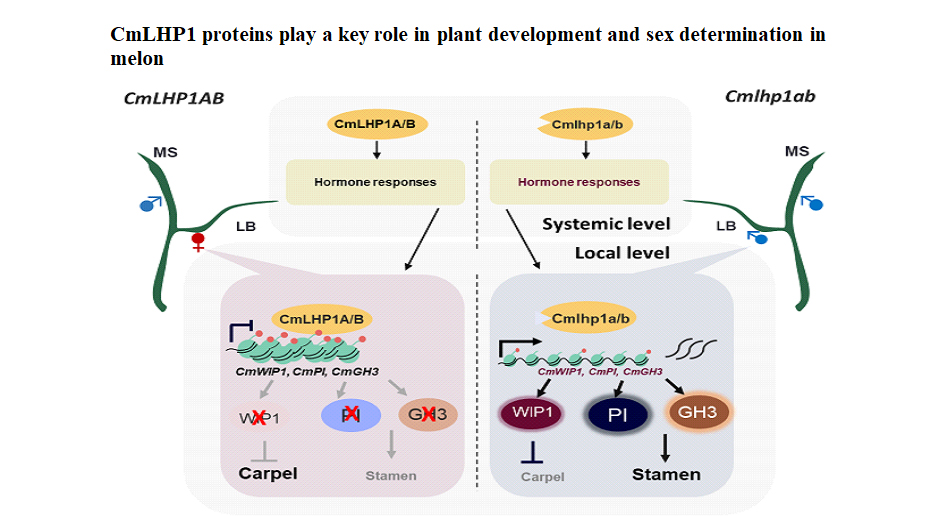Epigenetic regulation of sex determination
CmLHP1 proteins play a key role in sex determination in melon
In monoecious melon, sex is determined by the differential expression of sex determination genes (SDGs) and adoption of sex-specific transcriptional programs. Histone modifications such as H3K27me3 have been previously shown to be a hallmark associated to unisexual flower development in melon; yet, no genetic approaches have been conducted for elucidating the role of H3K27me3 writers, readers and erasers on this process. Here IPS2 and GAFL research units show that melon homologues to the Arabidopsis LHP1, CmLHP1A and B, redundantly control several aspects of plant development, including sex determination. Cmlhp1ab double mutants displayed an overall loss and redistribution of H3K27me3, leading to a deregulation of genes involved in hormonal responses, plant architecture and flower development. Consequently, these double mutants display pleiotropic phenotypes and interestingly, a general increase of the male:female ratio. We associated this phenomenon with a general deregulation of some hormonal response genes and with a local activation of male-promoting SDGs and MADS-box transcription factors. Altogether, these results revealed a novel function for CmLHP1 proteins in the maintenance of monoecy, and contribute with novel insights into the Polycomb-mediated epigenomic regulation of sex lability in plants.

Rodriguez-Granados NY, Ramirez-Prado JS, Brik-Chaouche R, An J, Manza-Mianza D, Sircar S, Troadec C, Hanique M, Soulard C, Costa R, Dogimont C, Latrasse D, Raynaud C, Boualem A, Benhamed M, Bendahmane A. CmLHP1 proteins play a key role in plant development and sex determination in melon (Cucumis melo). Plant J. 2021 Dec 12. doi: 10.1111/tpj.15627
13/01/2022
